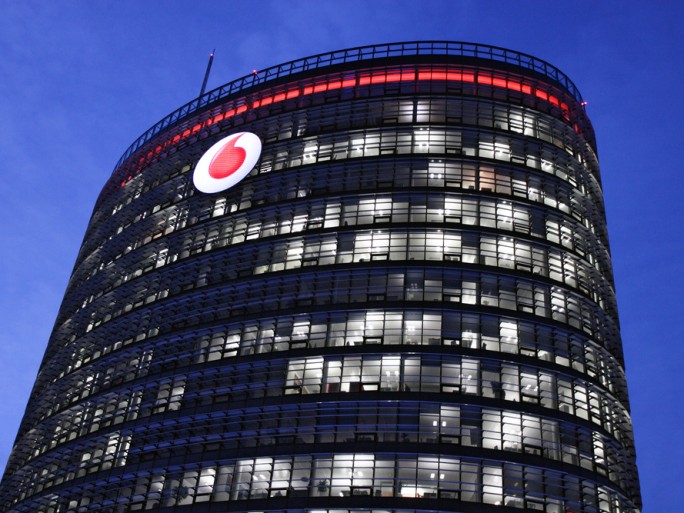Vodafone Hasn’t Really Abolished Line Rental But It Has Made A Statement

ANALYSIS: Vodafone isn’t really getting rid of line rental but by combining charges and offering cheap fibre, it shows it is committed to fixed broadband
“By abolishing line rental charges for all new and upgrading Vodafone Home Broadband customers, Vodafone is removing one of the major irritants and frustrations for UK consumers,” was the bold statement made this morning.
Vodafone will not bill its customers for line rental separately and will combine the cost with its service charge. This isn’t exactly abolition, but the move makes the cost of its broadband services more transparent and allows it to stand out in a crowded market.
The Newbury-based operator claims its 38Mbps service is the cheapest in the UK, but unlike competitors BT and Sky, it locks subscribers into an 18-month contract. However, it’s even cheaper for mobile customers, who get another £3 off the £22 per month cost.
Vodafone line rental
 “Giving our customers the opportunity to break free from hidden line rental charges is our way of letting our customers know that we are listening and that we are serious about providing them with the Unlimited Home Broadband experience that they deserve,” boasted Glafkos Persianis, commercial director at Vodafone.
“Giving our customers the opportunity to break free from hidden line rental charges is our way of letting our customers know that we are listening and that we are serious about providing them with the Unlimited Home Broadband experience that they deserve,” boasted Glafkos Persianis, commercial director at Vodafone.
“We started our journey into fibre optic home broadband just over a year ago and are delighted to show that we are a truly innovative and customer focused provider. We know our customers depend on us to stay connected, and now we can satisfy their needs both at home and on the go whilst also putting an end to line rental charges.”
Vodafone’s move into fixed line is motivated by a fear that BT, TalkTalk, Sky and Virgin Media’s bundled services would attract more customers, and foster greater loyalty, than a mobile-only provider.
Cancelling one service is difficult enough, but switching mobile deals when you have your television and broadband from the same company is less appealing. Vodafone obviously already has the mobile part and will launch a television service later this year.
Quad play market
Sky’s reputation is in television, BT’s in broadband, Virgin Media is the traditional multi-play giant and TalkTalk’s ‘no frills’ services have allowed for rapid growth. It’s difficult for Vodafone to stand out, as it has been for other mobile operators entering the fixed space.
O2 eventually sold up to Sky and EE’s offering was understated when it launched, never mind now it has been consumed by BT
 “It’s a bold move and one that will help raise awareness of its fibre broadband offerings in a crowded market,” added Paolo Pescatore, director of multiplay at CCS Insight. “It represents a great opportunity for Vodafone to steal a march on its rivals, more so given it is a relatively new entrant and faces significant headwinds in the fixed line broadband market.
“It’s a bold move and one that will help raise awareness of its fibre broadband offerings in a crowded market,” added Paolo Pescatore, director of multiplay at CCS Insight. “It represents a great opportunity for Vodafone to steal a march on its rivals, more so given it is a relatively new entrant and faces significant headwinds in the fixed line broadband market.
“However, Vodafone’s lack of content still represents a huge headache for the company as all of its rivals are bundling entertainment, movies and sports with their broadband deals.”
To differentiate, Vodafone is offering users an app-controlled smart router, and now combined pricing. It’s the first do so, but analysts say it is likely most broadband providers might be required to do so in the future after research from Ofcom and the Advertising Standards Agency (ASA) found most consumers are unable to understand the advertised cost of a broadband package due to misleading headline prices.
“To be clear, Vodafone isn’t really abolishing line rental charges, it’s simply combining the charge into its fibre pricing,” said Ewan Taylor-Gibson, broadband expert at uSwitch. “This is because broadband providers are under pressure from Government and Ofcom to change advertised pricing so customers see a cost per month that includes line rental, so Vodafone is stealing a march on its rivals.
“It won’t be long before this way of pricing becomes the norm across the whole broadband market – although Vodafone should get a pat on the back for being the first to take the plunge. Compared to other fibre deals on the market, Unlimited Fibre Broadband 38 is competitive, with the only frustrating thing being that it ties users into an 18-month contract – longer than the current standard.”
By beating everyone else to the punch, Vodafone stands out. It’s a tactic it has employed in the mobile market by offering users inclusive roaming in Europe. The EU is to abolish roaming costs in the UK next year, so Vodafone would have to do it anyway. But instead it has stolen a march to stand out – something it will have to do if is to compete.
What do you know about UK mobile operators? Find out with our quiz!